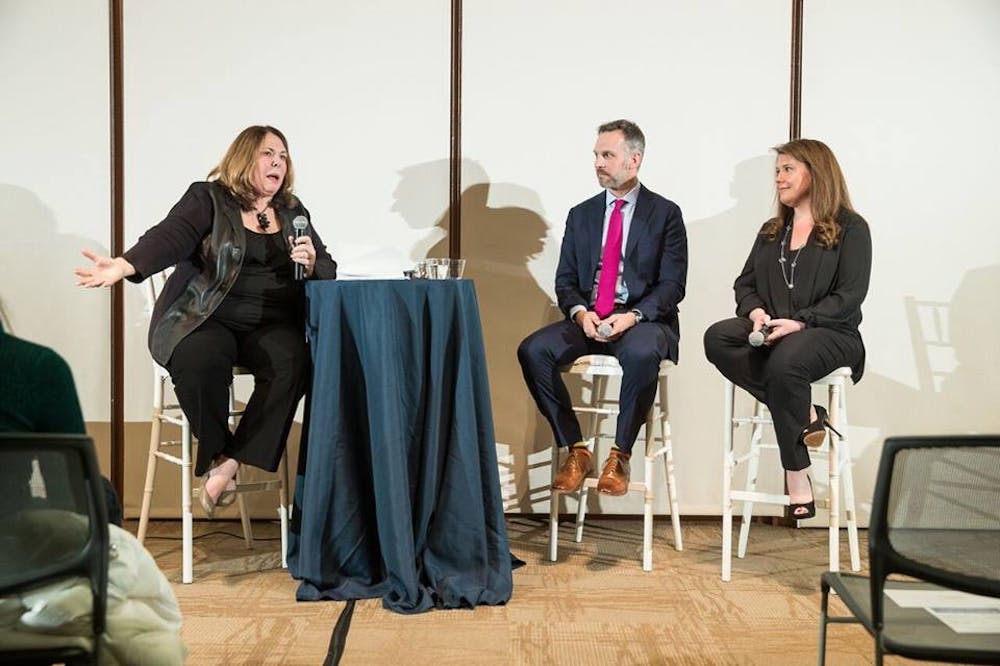CNN news anchor and Chief Political Correspondent Candy Crowley moderated a panel titled “Women on the Run” on March 6 to question misconceptions about women in politics.
The panel featured co-authors Jennifer Lawless and Danny Hayes, who wrote “Women on the Run: Gender, Media, and Political Campaigns in a Polarized Era” last May. The Kennedy Political Union teamed up with the AU Women and Politics Institute to host the event.
Lawless, the director of AU’s Women and Politics Institute and a School of Public Affairs professor, worked with Hayes, a political science professor at George Washington University, to write the book. Their work focuses on debunking common myths about women in politics.
The two noted that women are widely thought to experience less success in politics than their male counterparts. However, Lawless pointed out this is not actually the case.
“There is nothing to suggest that when women run for office they don’t win at equal rates,” Lawless said.“There is nothing to suggest that donors don’t give the same amounts to male and female candidates. And the media generally treat male and female candidates the same way, at least when they run for Congress, in terms of the volume of coverage they receive and what that coverage looks like.”
In doing research for the book, Lawless and Hayes found gender was not relevant when voters go to the polls. More times than not, voters follow party lines and choose candidates based on beliefs.
“Our argument in the book is by no means to say women do not face sexism, either on the floor of the Senate or in other ways in politics, in ways that men don’t have to put up with,” Hayes said. “The question then becomes, ‘Does that translate into electoral bias against them in ways conventional wisdom assumes?’”
Crowley asked the authors to explain how the United States is ranked 104th in the world for female representation in political assemblies. Lawless attributed this to the entrepreneurial nature of U.S. elections. There is a certain infrastructure necessary to run for office, she said.
“Women haven’t found themselves in the networks and with the kinds of connections the facilitate that kind of access,” Lawless said.
Despite not having these resources, women still manage to perform equally as well as men. Even with all of the evidence in the book, Crowley had a hard time believing this was the case.
“There is something deep inside me that says ‘this isn’t true,’” Crowley said during the event.
In her experience covering elections at the federal level, Crowley found sexism to be extremely prevalent.
“I remember in 2008 we went to our first town hall meeting in Iowa, after Hillary Clinton announced she was running, and one of the first questions out of the bag was, ‘Are you tough enough to take on Saddam Hussein?’” Crowley said. “So I feel like there are nuances in language and nuances in what voters are asking, that to me did speak to a difference.”
The authors are not suggesting women do not face sexism in politics. However, when it comes to elections, there is nothing to prove they do not do as well as male candidates, Lawless said.
“We would agree that the 2016 election cycle certainly at the presidential level was rifled with sexism and discussions of gender in ways which I thought we were beyond,” Lawless said.
Lawless and Hayes said they are optimistic for the future. The two think that in order to see more women in office, they need encouragement.
“In some ways I think the future for women in American politics is quite bright,” Hayes said. “One of the consequences of the election was that there seems to have been a lot of expression of interest in politics from women.”





